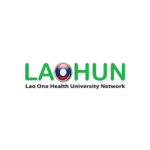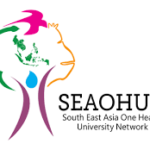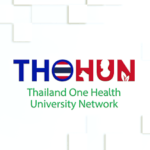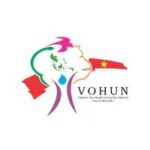Home » Research » Mekong One Health Innovation Program » MOHIP News » Michigan State University Mekong One Health Innovation Team Visits Lower Mekong Region


Michigan State University Mekong One Health Innovation Team Visits Lower Mekong Region
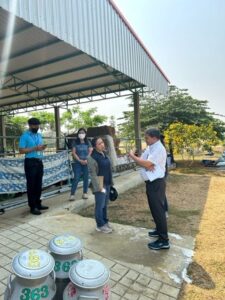 Michigan State University has been implementing the U.S. Department of State Bureau of East Asian Pacific (EAP) funded Mekong One Health Innovation Program (MOHIP) in Laos, Thailand, and Vietnam. Overarching goal of the MOHIP is connecting the Mekong and U.S. researchers/practitioners working on One Health (animal health, human health, and environmental health) and creating a transnational network of those professionals. The MOHIP aims to help build the capacity of Mekong countries to make informed decisions about health security programs and policies. In doing so, the MOHIP implements three core activities: i) conduct monthly webinars on One Health and zoonoses and related topics, ii) provide training on “Health Security, One Health and Zoonoses”, and iii) fund projects to be led by local researchers that will examine country One Health and/or related issues.
Michigan State University has been implementing the U.S. Department of State Bureau of East Asian Pacific (EAP) funded Mekong One Health Innovation Program (MOHIP) in Laos, Thailand, and Vietnam. Overarching goal of the MOHIP is connecting the Mekong and U.S. researchers/practitioners working on One Health (animal health, human health, and environmental health) and creating a transnational network of those professionals. The MOHIP aims to help build the capacity of Mekong countries to make informed decisions about health security programs and policies. In doing so, the MOHIP implements three core activities: i) conduct monthly webinars on One Health and zoonoses and related topics, ii) provide training on “Health Security, One Health and Zoonoses”, and iii) fund projects to be led by local researchers that will examine country One Health and/or related issues.
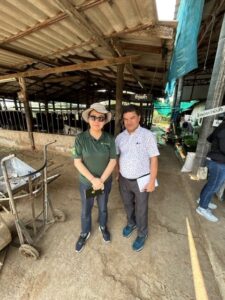 The MOHIP comprising of Principal Investigator Dr. Ramjee Ghimire, and Co-Investigator Dr. Qing Xia visited three MOHIP countries, i.e., Laos, Thailand, and Vietnam. Objectives of the visit were to meet the key One Health stakeholders in these countries; inform them of the MOHIP goal, objectives, and activities; identify gaps in health services system if any in these countries; seek their support to promote and successfully implement this project activities among relevant stakeholders; and explore other collaboration opportunities.
The MOHIP comprising of Principal Investigator Dr. Ramjee Ghimire, and Co-Investigator Dr. Qing Xia visited three MOHIP countries, i.e., Laos, Thailand, and Vietnam. Objectives of the visit were to meet the key One Health stakeholders in these countries; inform them of the MOHIP goal, objectives, and activities; identify gaps in health services system if any in these countries; seek their support to promote and successfully implement this project activities among relevant stakeholders; and explore other collaboration opportunities.
The MSU team met the MOHIP country coordinators and advisors of these countries along with their One Health University Network (OHUN) team members and OHUN member institutions and their leadership and faculty. The team also visited a couple of fields and observed the wet markets, and livestock farms and interacted with the farmers and vendors and in some places with the technical professionals who have been providing advisory services to those farmers. The team also met with the leaderships and members of the government One Health Coordinating Units and interacted with them. Additionally, the team met with the U.S. Embassy Officials in charge of Global Health Security and associated program. Sung Chung, Associate Director of IGH accompanied the MOHIP team in Laos and Vietnam.
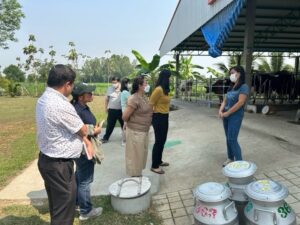 The US Embassy officials were excited to know about the MOHIP. They expressed their willingness to promote it and also coordinate with other U.S. Government agencies working in the region and avoid duplication and bring synergy to the program outcomes. The government officials from three countries were also found to be happy to see this program being implemented in their countries. They shared some issues like increasing environmental (air, water) pollution yet environmental health is not getting due attention and support like animal health and human health; and human resources working in One Health sector require more and rigorous training on disease surveillance and rapid diagnosis, data management and modelling, etc. and need for exchange visits.
The US Embassy officials were excited to know about the MOHIP. They expressed their willingness to promote it and also coordinate with other U.S. Government agencies working in the region and avoid duplication and bring synergy to the program outcomes. The government officials from three countries were also found to be happy to see this program being implemented in their countries. They shared some issues like increasing environmental (air, water) pollution yet environmental health is not getting due attention and support like animal health and human health; and human resources working in One Health sector require more and rigorous training on disease surveillance and rapid diagnosis, data management and modelling, etc. and need for exchange visits.
Overall, the visit was successful. The MOHIP team found growing interest in and enthusiasm for MOHIP and its activities. The visit was possible because of the excellent coordination and support from Vietnam One Health University Network (VOHUN), Laos One Health University Network (LAOHUN). Thailand One Health University Network (THOHUN), and Southeast Asia One Health University Network (SEAOHUN).
Visit made possible by:
